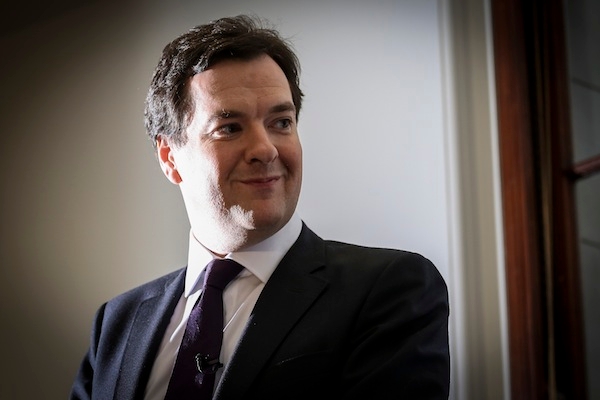Oh dear. George Osborne’s claim in December’s Autumn Statement that ‘the deficit is coming down this year, and every year of this Parliament’ was already looking hubristic, even before today’s news that the 4G mobile spectrum auction raised just £2.3 billion, rather than the £3.5 billion that the Office for Budget Responsibility had forecast. As Fraser blogged in November, there were hopes that Britain would — like Ireland — raise even more than expected from the auction.
At the Autumn Statement, the OBR predicted that borrowing (once you strip out the effects of various one-off accounting changes, such as the transfer of Royal Mail pensions) would fall ever-so-slightly this year, from £121.4 billion in 2011-12 to £120.3 billion in 2012-13. The 2011-12 deficit has since been revised up to £121.6 billion, but that forecast for this year included the assumption that the spectrum auction would raise £3.5 billion. Since it came in £1.2 billion under, that would put borrowing at £121.5 billion — £0.1 billion lower than last year — assuming everything else comes in on target.
But it’s not looking likely that everything else will come in on target. Borrowing so far this year (April to December) has come in £7.2 billion (7.3 per cent) higher than in the same period last year.
If it continues to overshoot by the same proportion for the last three months of the year, the deficit will end up at £128.1 billion — £6.5 billion higher than last year — even after the £2.3 billion proceeds from the 4G auction are included. Even if the government borrows only as much in January-March as it did last year, the deficit would be £126.5 billion — £4.9 billion higher than last year.
Why the overshoot? Well tax revenues haven’t grown as much as hoped. In particular, income tax and capital gains tax receipts so far are 1.3 per cent down on last year, whereas the OBR had forecast that they’d grow by 1 per cent. And central government core current spending (ie. excluding benefits and debt interest) is up by 2.3 per cent rather than the predicted 1.5 per cent (though that still represents a 0.2 per cent real-terms cut, as the cash rise is below inflation).
Of course, January is the key month for self-assessment and capital gains receipts, and the ONS is publishing those figures tomorrow. At the moment, Osborne’s boast that the deficit would fall this year looks unlikely to come true — but not impossible (as there’s so much uncertainty in both the forecasts and the ONS figures). Strong growth in tax receipts tomorrow (plus perhaps a few revisions in his favour) could just about allow Osborne to pull another rabbit out of his hat. But if it fails to materialise, it looks like he’ll have to eat humble pie at next month’s Budget. It just shows the folly of putting too much stock in forecasts that involve a large amount of uncertainty.








Comments